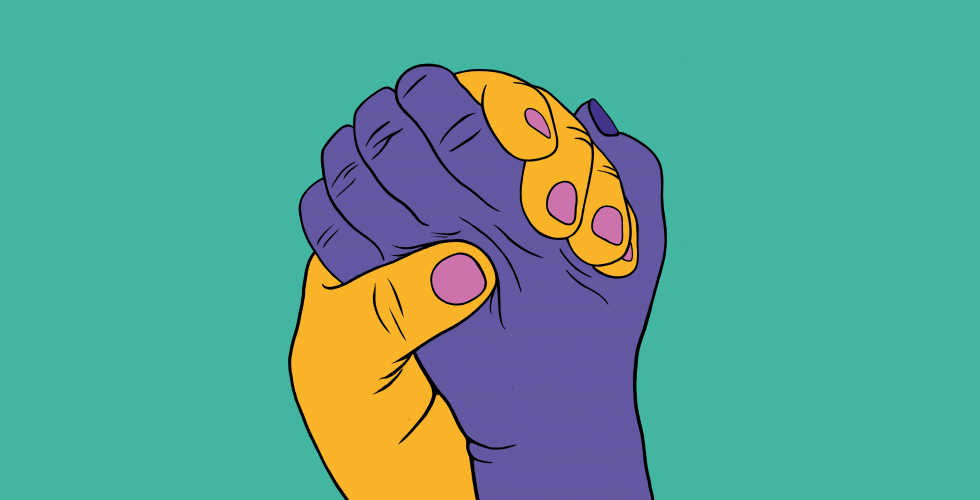
Has someone crossed your boundaries?
RFSL Support Service targets LGBTQI people who have been subjected to violations, threat and violence. Sometimes the acts are criminal, but they don't have to be.
LGBTQI people should feel confident that they can access professional support. Since its start in 1998, RFSL Support Service has met many LGBTQI people and amassed a great deal of experience in the field. The support is tailored to your needs and is given on your terms.
The person subjecting someone to violence can be a partner, family, relative, colleague, classmate, neighbor, temporary contact, persons unknown, and, sometimes, organised groups. The violence may be psychological, physical, sexual, economic or material.
The person hurting somebody may have different motives. They may want to exercise power and control over someone or be driven by a hatred of LGBTQI people. Sometimes the violence is honor-related and several individuals may be involved.
When the motive is hatred
If someone tries to violate you because of how they perceive your sexual orientation, gender identity or gender expression, it is hate crime. It may also be a matter of incitement to racial hatred or unlawful discrimination.
Hate crime may involve being:
- harassed, spat upon, called ugly names verbally or through, for example, graffiti
- groped, forced to perform sexual acts
- locked in, restrained
- threatened via social media, phone or letters
- pushed, scratched, bitten, having one’s hair pulled, beaten, kicked
Are you living in a relationship that sometimes scares you?
Being subjected to violence by your partner means that your partner is trying to limit your living space through power and control. Partner violence is repeated and systematic. It may be percieved as constant stress and may result in lowered self-esteem, fear, anger and a gradual shift in boundaries.
It can involve being:
- humiliated, belittled and called derogatory names
- criticised for your appearance, gender expression, behavior or your family/friends
- controlled and isolated
- unable to see who you want
- deprived of the power over the household economy
The partner may also:
- threaten to harm others, such as pets or children
- threaten to commit suicide
- intimidate
- throw things at you, use weapons/objects
- threaten to disclose your sexuality, gender identity, relationships or HIV-status
- threaten to complicate your gender assessment process, keep you from taking your medication
Sexual violence
Sexual violence is about violating someone’s sexual boundaries. It can happen in a relationship or in a temporary sexual contact. Sexual violence can also be used to humiliate or punish somebody.
It might be:
- someone touching your body against your will
- being forced to witness, or being coerced to consent to, sexual acts you don’t want to witness or participate in
- partner(s) refusing to have safer sex
- being forced to pose for fotographs or being forced to participate in sexual games against your will
- being subject to rape
Honor-related violence and opression
Sometimes, honor norms can be the cause of crimes directed at LGBTQI people. As with hate crime, the offenses range from offensive words to risk of fatal violence. When violence is honor-related multiple people are often involved in subjecting someone to control, threats and/or violence. Honor can be described as something that has to be defended in order for a family to maintain its good reputation.
It might involve being:
- monitored and controlled
- deprived of your right to have sex or relationships with whomever you want
- punished with, for example, a curfew or being forced to get married against your will
- subjected to attempts at conversion by psychologists, doctors or a religious leader
- alienated from the family or forced to live a double life
- subjected to physical violence
